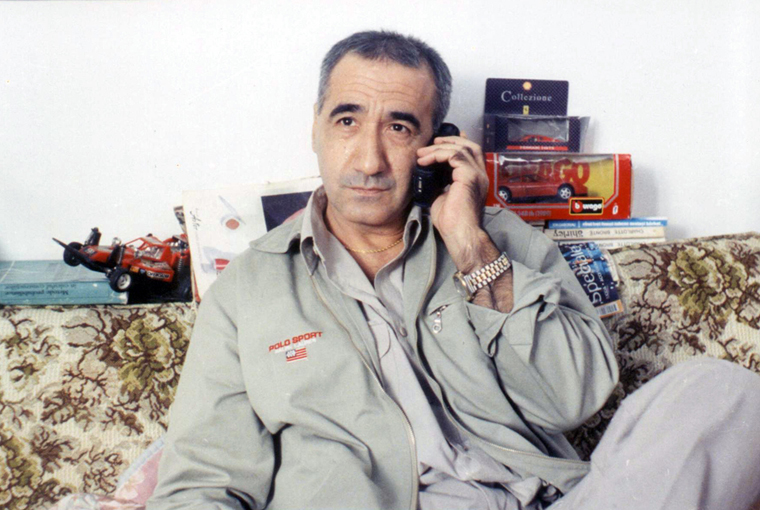Provisory Action
Cristi Puiu’s Stuff and Dough (Marfa şi banii, 2001)
Vol. 7 (July 2011) by Konstanty Kuzma
Cristi Puiu’s first feature Stuff and Dough from 2001 is the story of Ovidiu and Vali, two young men from Constanța (a city in the east of Romania), who have to deliver a dubious package to Bucharest. Their employer is Mr. Ivanov, a shady figure who is very particular about the details of the job, but offers a decent amount of money with which Ovidiu intends to break free from his parents. The two young men agree to transport “medicine” for Mr. Ivanov and set out to Bucharest with Ovidiu’s van, but soon realize they are being pursued by a group of men in a red jeep that are after the package. Along with Bety, Vali’s girlfriend, Ovidiu and Vali get caught up in a dangerous tour. Eventually, both cars are stopped by the police, and the three can escape their pursuers after bribing the police, finally arriving in Bucharest. Even though they are initially incapable of reaching their contact in Bucharest, the suspense slowly wears off…
Stuff and Dough is considered the first film of the Romanian New Wave (if one wants to attribute this term to current Romanian cinema), and it is surprising to see that this film involves much more explicit conflict than the Romanian films that emerged in the last couple of years. Although the camera does work with the long shots of the two films by Cristi Puiu succeeding Stuff and Dough, the story follows a distinctive plot-line unlike more recent films from Romania. Stuff and Dough is carried by an acute tension, and at times almost feels like an action film, particularly during the first minutes of the pursuit. But whereas in the first half of the film, we mainly focus on the pursuit of the red jeep, the tension soon disperses as the conflict between Ovidiu (Alexandru Papadopol) and Vali (Dragos Bucur) takes up its own dynamics. When Ovidiu, Vali and Bety reach Bucharest, the conflict escalates on a parking lot of a mall. Ovidiu and Vali leave Bety alone for a few minutes, but as they return, Ovidiu notices that Bety had left the car with the package alone, and he starts swearing at her. Vali – although initially sharing Ovidiu’s nerviness – feels insulted and confronts Ovidiu. The verbal fight does not lead to a physical one, but the scene annihilates their connection abruptly, casting a shadow over the rest of the film. Even though they hand over the bag and Ovidiu witnesses that their pursuers were killed, the conflict cannot be undone – the friendship between the two is not recommunicable.
Though more dynamic in its pace and action, Stuff and Dough is similar to The Death of Mr. Lăzărescu and Aurora regarding the world that it depicts. One could understand the three films as a triptych of generations, with the protagonists of the three works Ovidiu, Dante Remus Lăzărescu and Viorel representing different (generational) perspectives of a common society that lacks communication. Still, one should be careful about interpreting a chronological logic into Puiu’s work. Whereas The Death of Mr. Lăzărescu and Aurora work with the vagueness of a quasi-objective, radically tardy observation, Stuff and Dough – aside from its documentarist style – could be understood as a plot-driven road movie: only in the end there appears the definite liberation from the obstructions of the genre. Here, the directional structure of the story is resolved, but simultaneously we realize that the real tension of the story is not the question of whether Ovidiu and Vali will be capable of accomplishing their job. The job has turned into a simple variable that is buried under its depiction on screen, and herein lies the constitutive parallel of Stuff and Dough to Puiu’s other works. We miss the point of the film if we wait for a resolution to the problems articulated, because that is not something Puiu is looking for. The depiction of the events in these films contains the only conclusion we can draw; there is no moral or message we can carve out. Like in the case of The Death of Mr. Lăzărescu and Aurora, one feels a little dissatisfied after watching Stuff and Dough, a tendency that critics have often described as poignancy. It seems however that this feeling simply roots in Puiu’s premise that does not grant us a key to an evident message. Here, cinema takes place on the screen, not behind it.




Leave a Comment